Ken Varnum
Library Blogs
Showing 681 - 690 of 1989 items
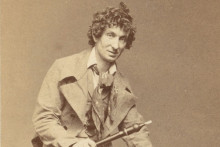
The University Library’s digital collections, encompassing more than 300 collections with over a million items, are now discoverable through the library’s Articles discovery tool, powered by Summon. Read on to learn about searching this trove of images and text, and how to add it to your library’s Summon instance.
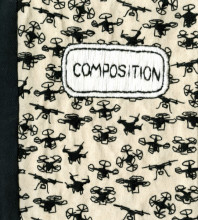
The Special Collections Research Center is pleased to announce the new exhibit Dear Stranger: Diaries for the Public and Private Self. Join us to celebrate the power of personal writing at the exhibit opening and journaling workshop on Tuesday, January 21.

The Blue is a historical thriller of industrial espionage in the world of 18th century porcelain manufacture. The heroine is a talented artist who wishes to become a serious painter, but, as a woman, that path is blocked to her in England. In Venice it would be a different story, but she doesn't have the money to go there. An unscrupulous nobleman offers to finance her journey to Venice if she accepts a job at a porcelain factory and steals the formula for a stunning new shade of blue. But the stakes are higher than she ever expected.
•
Applications are now open for this year's Community + Citizen Science Fellows Program

Welcome back! Dive into the new year by checking out some books for the Winter 2020 LSA Great Lakes Theme Semester. January books on display in the Shapiro Lobby highlight the history, culture, ecology, and more of the Great Lakes region!
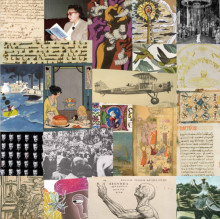
Applications are now open for the Ralph C. and Mary Lynn Heid Research Fellowships to support research requiring substantial on-site use of our special collections.
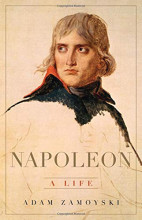
In this detailed biography of Napoleon, Polish historian Adam Zamoyski gives us a balanced view of his character: not a hero, but not a villain, either. Zamoyski focuses on Napoleon's formative years and personal life, not so much on the battles, although that is covered as well.

A project team charged with providing staff training activities approached the project assessment with an iterative design lens, allowing for responsive and timely development of multiple opportunities for staff engagement around organizational and personal change. The team tried out different assessment techniques related to the opportunities offered.

The Personal Digital Archiving zine is now available in the Digital Preservation Lab and in Shapiro Library Design Lab's Design-o-Matic 4000 vending machine!
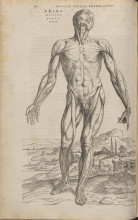
Join us today for our December Special Collections After Hours open house! You are all invited to explore a great variety of early printed books containing illustrations of the human body that reflect the science of dissection as well as the latest artistic theories in early modern Europe. The display will include richly illustrated treatises by well-known authors such as Leonardo da Vinci and Andreas Vesalius. Refreshments.
Time: 4:00-6:00 pm.
Location: Special Collections Research Center. Hatcher Library Room 660D
Time: 4:00-6:00 pm.
Location: Special Collections Research Center. Hatcher Library Room 660D